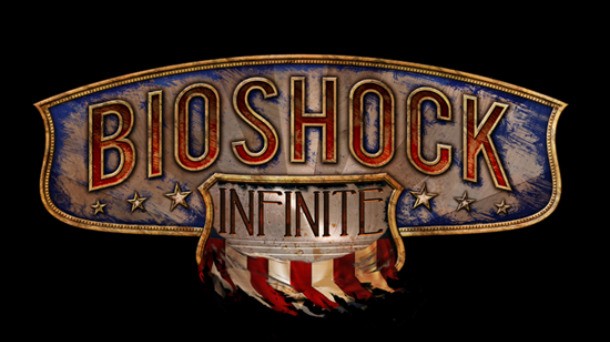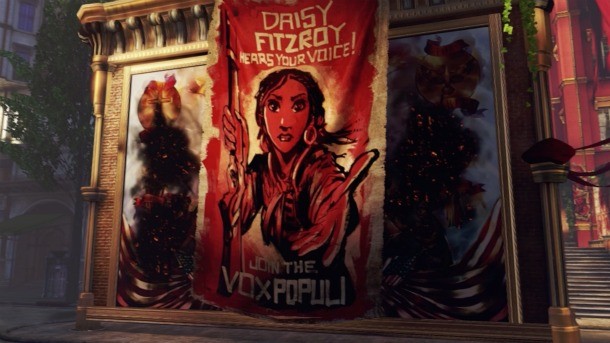Please support Game Informer. Print magazine subscriptions are less than $2 per issue
Ken Levine On BioShock Infinite's 1999 Mode

Irrational's Ken Levine shared his thoughts with us on the recently announced 1999 mode for BioShock Infinite. Read the full interview below to get Levine's opinion of himself as a gamer, the purpose of the additional mode, and what he misses most from that year.
In case you missed the announcement of 1999 mode earlier this week, the short version is that BioShock Infinite has a mode where Vita-Chamber revives cost money and you have to scrounge for every penny and every bullet to get through the game – just like you did in classic titles like System Shock or Deus Ex. Don't worry if you're not hardcore enough to have fond memories of that era, though. BioShock Infinite's normal difficulty modes will feature a similar (lack of) difficulty to the other games in the series.
Read on for the lengthy interview with the BioShock's creative director himself.
Game Informer: Why are you spending your precious development time and budget on 1999 mode?
Ken Levine: It occurred to me in a revelation, what was missing in BioShock 1 – the sense of permanence. And then once you realize that, you're like, "Okay, we need to deal with that problem." I miss that; my favorite part of playing those old-school games is making those decisions.
What decisions do you have to live with in 1999 mode that you don't normally?
Even in regular difficulty mode, you're still making choices about your nostrums, which are similar to the gene tonics [in BioShock]. You're still making permanent choices about those. They're stuck to your body permanently. The big difference in terms of choices in this mode is that you're not going to be able to be a jack-of-all-trades, much like in games we've done before. If you're going in one direction, like one weapon or a certain type of vigor, that's going to come at the expense of other weapons and other vigors. If you're specialized in, say, rifles, and you're out of ammo for that and you come across a bunch of pistols or rocket launchers or something, you're going to be not so good with those weapons and you're going to feel that pain. You're really going to be incentivized to find resources for the weapons you're good at. I think that's going to be really interesting when you get into those fights where you feel like you're up against it in a way that you're not normally. Modern games can have a sort of even difficulty across all moments, and I really like those [other] moments. I'm a big fan of comeback moments. This comes from strategy games for me originally, where you really feel you're down and you manage to work your way back up to a place of power, but you have a period in the wilderness.
Do you worry that the challenge will get in the way of the authored experience that's at the core of BioShock?
I think that's a risk, certainly. Probably what we're going to do is you'll only be able to get to that mode through some kind of unlock. Not unlock in the game through "left, right, up, down," that kind of thing. But the kind of people who are going to play this are hardcore gamers, right? The people who are going to read Game Informer, go to various blogs and websites, and find this information. Those are the kind of people who are going to want this kind of challenge, I think. But yeah, there's definitely a risk that you're going to get pounded so much that you may not be able to take in the environment as much as the guy who is playing on easy or super easy. We want to give something to the people who are more interested in the game aspects and the resource management aspects.
It seems like difficult games are having a bit of a renaissance these days. Do you agree?
I'm an old-school gamer so I'll go play a game like S.T.A.L.K.E.R. and that really drives me, the "scraping by" feeling. That's a different game than BioShock, but for us, it was like, "Okay, let's not forget about those people." And we can't forget about those people because as a gamer, I very much am one of those people. My reactions have probably decayed enough that I'm going to get my ass kicked in 1999 mode, but it's certainly where my head is. I am an XCOM guy, I am a Civilization guy. That's my gaming DNA. I'm a System Shock 1 guy. Those games are so hard, but I think that this is a nice way to have our cake and eat it too.
[Next up: The influence of metrics on BioShock's development, what you get for playing 1999 mode, and more]

You mentioned a survey you did in the 1999 mode announcement. Did you look at any other metrics when you were making the decision to include it?
We don't do a lot of – we don't do any market testing. We don't line up game concepts in front of people and say, "Do you like this?" Because frankly, I don't think that's very useful because they're seeing an abstract version of what the idea is anyway, so they're not going to be reacting to what they're playing. I think if you try to focus test BioShock, you get people laughing at you. "Underwater objectivist utopia? Yeah, here's my 60 bucks." Yeah, right. I think you'd have a real problem there, so I don't believe in that. But this is a very different problem. We had a suspicion about what people were missing, and I had a suspicion from talking to a lot of gamers over time. I specifically went back to my college to speak at one point and a guy came up to me and started giving me a hard time. He's like, "I didn't like BioShock as much as your previous games." And I really tried to dig down with him and see what was disappointing. And he said, "I don't have to make any permanent choices. I didn't feel connected to my choices because I could just undo them." I was like, "Oooooohhhh." A bit of a ray of light shone down there. We just wanted to make sure that was a broadly held belief, so we did this little survey. Any time you can get in touch with your fans and ask them what they think it's a good thing.
What kind of incentives to people have to play 1999 mode?
I don't want to speak out of school; I could be wrong. I think there's a few nostrums – there's a few pieces of content that are custom for 1999 mode, but I don't want to oversell it. Mostly it's about playstyle experience. Again, we're not looking to have people say, "Oh, here's a new bit of the narrative."…. It's not a different game by any stretch of the imagination, but it's a different style and a different feel.
What do you personally miss most about the year 1999?
My metabolism? [laughs] I think one thing that I miss – and this is a tough one – is that as an industry forms, the genres calcify over time. Not even genres themselves, but just the notion that there's a genre called first-person shooter, there's a genre called strategy games. I think that's a tough problem, but I think it's gotten a lot better in the last couple of years because you've got these new platforms that demand that people innovate again, like iPhone games and things like that…. But I think there was a sense of experimentation that was going on in the hardcore PC gamer side that you don't see as much now because you just don't have the ability to launch different genres. In terms of big-budget titles, there are only a few genres that people are working in. And a lot of the genres I love, like turn-based strategy – I was as thrilled as anybody to see that XCOM announcement. I cannot wait to play that game, because I'm the biggest XCOM whore you've ever met. But that kind of strategy game, you just don't see a lot of it where in 1999 you'd see a lot of strategy games.
Are there any era-specific references we can look forward to in 1999 mode? Does the rain turn purple or anything?
[Chuckles] Let me say "no comment" for right now. But we called it 1999 mode because we wanted to reinforce when we're designing it that that's the frame of mind: if we were designing this game in 1999, within the concept that it is BioShock Infinite, what would we do in terms of the balance and the resources?
Modern design is modern for a reason. How are you trying to recapture the feeling from 1999 without falling into the same pitfalls?
As we design a game now, we have to have the game react to the player and endeavor to provide a fun experience to that player relative to their playstyle. Games are designed to be flexible now and accommodate gamers, and I think there are some really good things with that. As nostalgic as we get, if all games were like they were in 1999, there is some segment of the population that would love that. I think there is a large segment of the population who would be like, "I miss these innovations because they really allowed me to get to the fun faster." But I think that you lose something. You always lose something when you gain something. There's a sort of conservation of energy quotient in fun. You lose this edge-of-your-seat management and sense that if you beat the game you've really done something extraordinary, that you have a real accomplishment. We scratched our heads and said, "What can we do about this?" I think this is a modest proposal; I'm not saying, "Oh my god, this changes everything!" I think it's important that we keep that sort of game and gamer in mind and don't forget that style of gameplay, because it is something that is very important to me. And we want to do our little bit to make sure that it isn't lost.










